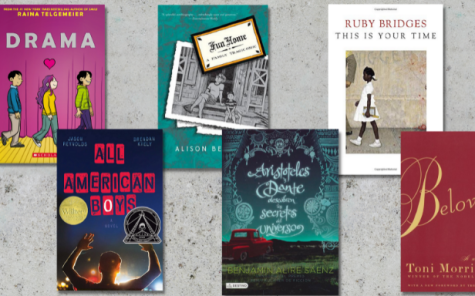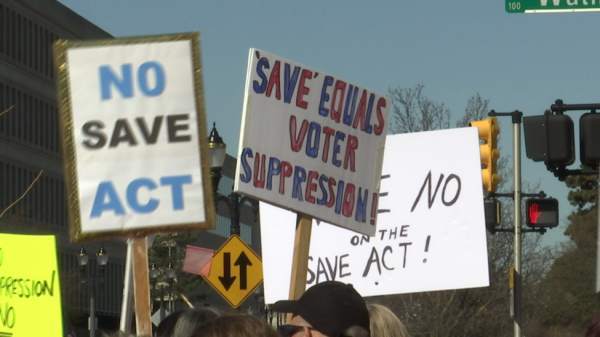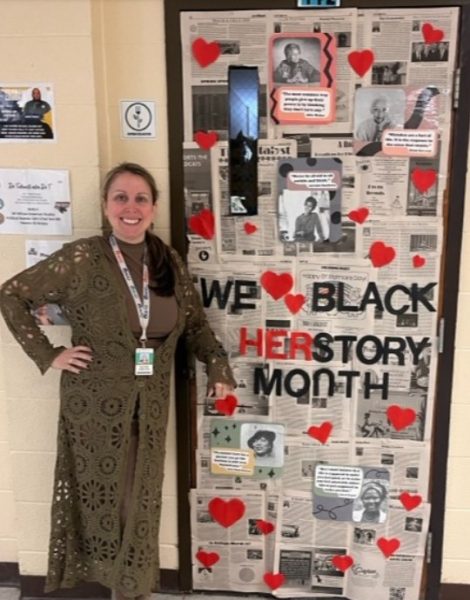Books Banning’s Nationwide
Bulletin Board featuring Banned Books
If you’ve been following the news lately you might have seen a pattern of book bans on the rise in the united states. Be it the removal of the Holocaust graphic novel Maus from a Tennessee school district’s eighth-grade curriculum or attempts to yank classics like The Handmaid’s Tale from library shelves, incidents of grassroots pressure against schools to control the materials children can access have seemingly grown in frequency and intensity. For example in Wyoming, a county prosecutor’s office considered charges against library employees for stocking books like “Sex Is a Funny Word” and “This Book Is Gay.” In Oklahoma, a bill was introduced in the State Senate that would prohibit public school libraries from keeping books on hand that focus on sexual activity, sexual identity, or gender identity.
In Tennessee, the McMinn County Board of Education voted to remove the Pulitzer Prize-winning graphic novel “Maus” from an eighth-grade module on the Holocaust because of nudity and curse words. Parents, activists, school board officials, and lawmakers around the country are challenging books at a pace not seen in decades. The American Library Association said in a preliminary report that it received an “unprecedented” 330 reports of book challenges, each of which can include multiple books, last fall. Even our state of Georgia isn’t relieved from this book banning recently Forsyth county bans at least 8 books it deemed to have “inappropriate sexual” content. And as this becomes more of a wildly talked about issue we have to ask ourselves the question of is it worth it? Are there valid reasons for these books to be banned or is it more of an overreaction and censorship of genuinely good books? To get more of an insight into the question I interviewed students and teachers of the wheeler populous to see what their stance was on this?
English teacher Ms. Sellman says “she understands the reason while there might be censorship of books around certain grade levels due to certain contents. But banning books state and county wides just leads to children not being able to experience the full range of books and what they have to offer. Even if they might contain controversial topics it’s good to allow kids to be exposed to such things. As it broadens their mindset and makes them more educated, it seems this was a similar sentiment echoed by a majority of students.
Rue Tshalama (12) “it’s not fair for schools to be able to censor these books they’re allowed to control the narrative instead of giving children the opportunity to think for themselves”.
Another student Bryce T (11th) said, “these are the same type of tactics schools can use to perpetuate negative stereotypes and block actual changes and evolution in the world”. Student aside even staff members have their own opinions about the recent waves of book bannings.
Language art department head Brian Clements, “I was very taken aback by this surge of book bannings as someone who’s an advocate for reading and anti-censorship I don’t think it’s the school district’s place to tell students what they can and can’t read”. Although the district might not approve of these books teachers have found a way around these sorts of restrictions by getting permission slips and actively engaging with parents of students about these books.

Media specialist Tehrani said, “as someone who’s been a librarian for this long this is the first time I’ve seen such allied efforts to ban and get books off the shelves” she later goes on to talk about her concerns and how these might spiral to effect censorship a the distribution of books in the future. Overall the efforts to ban these books have sparked controversy and discourse unlike before. Most avidly against governmental involvement over which books should be banned whether that be local or federal. And as the situation further develops the censorship of books hangs in the balance.

Semi is a senior, and this is his first year taking journalism, which is his favorite class because all of his friends are in it. "The Ozarks" is his favorite...



